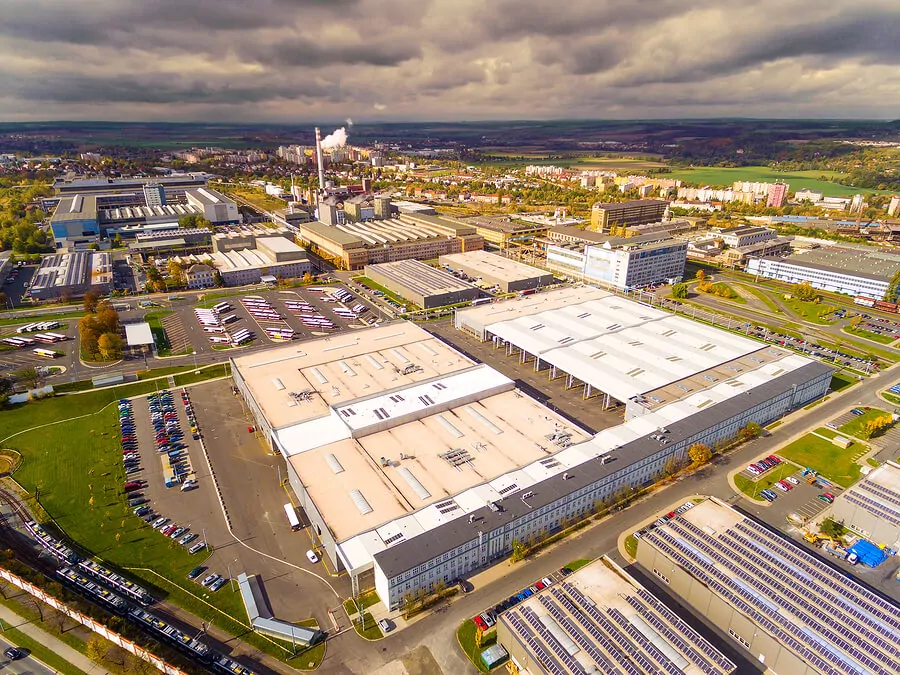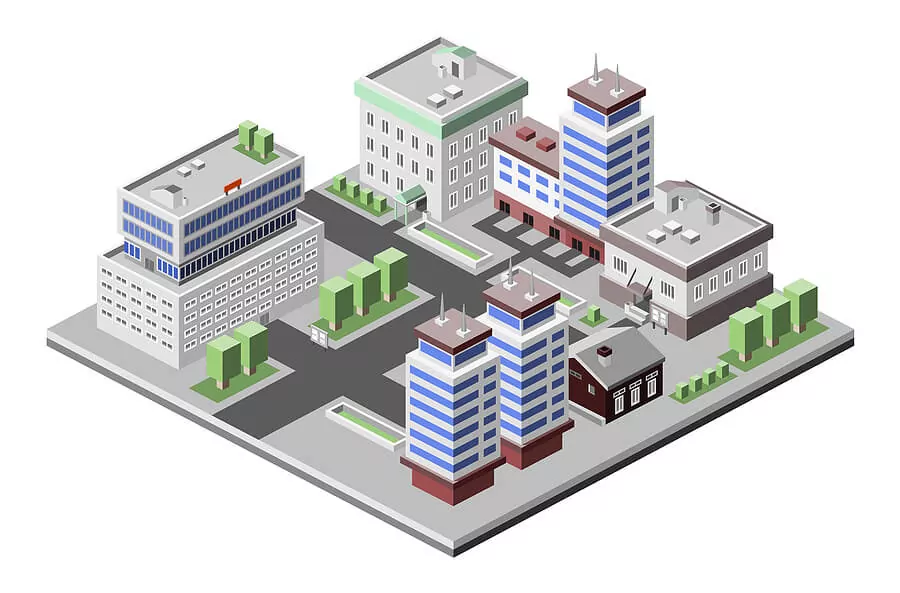
What if there was an easier way for commercial business owners to finance their energy efficiency projects without going into personal debt? In most cases, there is. You can finance at a low cost over the long term through C-PACE (Commercial Property Assessed Clean Energy).
C-PACE can finance up to the full amount of your energy-efficient equipment and systems. How does it work? What should you know before applying? Let's dive into C-PACE financing in PA.
C-PACE Financing is now in PA
Pennsylvania joined other states in offering the C-PACE program in 2018.
C-PACE financing in PA extends to commercial and agricultural businesses in the following counties:
- Washington
- Allegheny
- Erie
- Bedford
- Centre
- Lebanon
- Berks
- Montgomery
- Philadelphia
- Delaware
- Lehigh
- Northampton
- Wayne
The list is growing and resolutions for C-PACE financing have passed in even more counties. Check pacpacecounties.org to see where your county stands today. Once a local government gets involved in C-PACE, they help facilitate loans that let business owners upgrade to clean energy and energy efficient equipment.

C-PACE Debt is tied to the Property, Not the Individual
Arguably the best part of C-PACE is that you don't have to go into debt to get financing. The debt ties to your property, which means you can offload the loan if you ever sell your property and the mortgage holder agrees to take it on. It won't impact your personal credit score at all.
What Types of Projects Benefit from C-PACE Financing?
C-PACE financing in PA covers:
- Energy efficiency equipment including whole-building insulation, combined heat and power, smart building systems, heat recovery systems, LED lighting, and more.
- Renewable Energy including solar, wind, hydropower, biomass, and other forms of alternative energy.
- Water conservation projects that reduce water usage and/or increase water efficiency.
Increase Your Energy Efficiency with C-PACE
C-PACE specifically caters to projects that decrease a commercial property's carbon footprint.
Sure, the country's largest companies contribute the bulk of our greenhouse gases (the top 15 food & beverage brands in the US emit 630 million metric tons per year, more than all of Australia). However, even if you're not in the top bracket, you should know that commercial businesses as a whole make up a decent chunk of emissions.
The US Department of Energy, state and local governments, capital providers, mortgage holders, and energy consultants have been able to work on C-PACE together to develop a pathway for businesses to follow. Now, energy efficiency isn't an abstract destination, but a tangible goal that you can achieve.

How C-PACE Financing Works
Once a state joins the C-PACE program, counties and municipalities help administer the program to local commercial businesses. Other private actors, like capital providers, help with funding.
A commercial business develops a C-PACE-approved project to help spearhead energy efficiency. Then, the business sends the plan in with their C-PACE application to get low-cost, long-term financing for the project's upfront costs.
At maximum, the dollar value that C-PACE finances is limited to the project's soft costs, direct costs and C-PACE financing costs. Some regions even allow retroactive financing to help improve liquidity for businesses that have already made sustainable changes.
To date, C-PACE has helped fund more than $800 million in commercial projects, and that value is increasing exponentially as more states and counties hop on board.
Resources to Help You with C-PACE in PA
Pennsylvania allows private capital providers and mortgage holders to help fulfill the need for C-PACE funding. This helps to ensure the program's longevity, since it's not entirely dependent on government cash grants and rebates (which, of course, stem from taxpayer wallets).
The process can feel complex, but resources like Sustainable Energy Fund (SEF) and Keystone Energy Efficiency Alliance (KEEA) can help.
How to Prepare Your C-PACE Application
Even if your commercial business has a solid bottom line, it's still a smart idea to take advantage of low-cost, long-term financing from C-PACE.
Before you start your C-PACE application, you'll need to prepare a few things:
- Make sure your PA county supports the C-PACE program.
- Read through your county's C-PACE resolution to make sure any project you develop is in line with the criteria.
- Develop your project first, and arrange for financing from eligible local providers.
- Determine whether you want to apply online or print an application to fill out by hand.
- You'll need to submit a pre-application and final application, so leave time for both.
When You Should Expect to Repay Your C-PACE Loan
A loan is a loan, even when it's a low-cost and long-term loan. Any business owner reading this likely has the question, "When will I have to pay it back, and what'll it cost?"
C-PACE loans are long term, which means you have about two years until the first payment and at least 10 years to pay it off. This fits well with the long-term resiliency goal that many commercial building owners have.
Interest rates are very low for C-PACE loans because the loan mechanism is labeled as secure (and thus low-risk for the lender). You may see an interest rate from about 3.7–8.5%, depending on your business' unique situation. Because of the low cost per installment, you don't have to risk missing payments and messing up your company's credit standing.
Even if you plan on selling your building before the loan is up, you may be able to sell the C-PACE loan in the deal. As environmental regulations increase, that loan could be a valuable addition to your commercial real estate offering.
Bottom Line: C-PACE Helps Your PA Commercial Property Keep Pace with Innovation
At A1 Energy, we're a fan of C-PACE, R-PACE (aka Residential PACE), and anything else that uplifts the shift to broad-scale energy efficiency.
Pennsylvania has some of the oldest infrastructure in the US, and that includes commercial properties. Transitioning to energy efficient equipment and systems doesn't have to mean shedding that history. Instead, it helps Pennsylvania buildings stay relevant, so the properties can continue to make their mark.
If you're not currently located in a Pennsylvania county with active or in-process C-PACE legislation, consider reaching out to your local government. If you're in the right county, team up with an expert like A1 Energy today.
